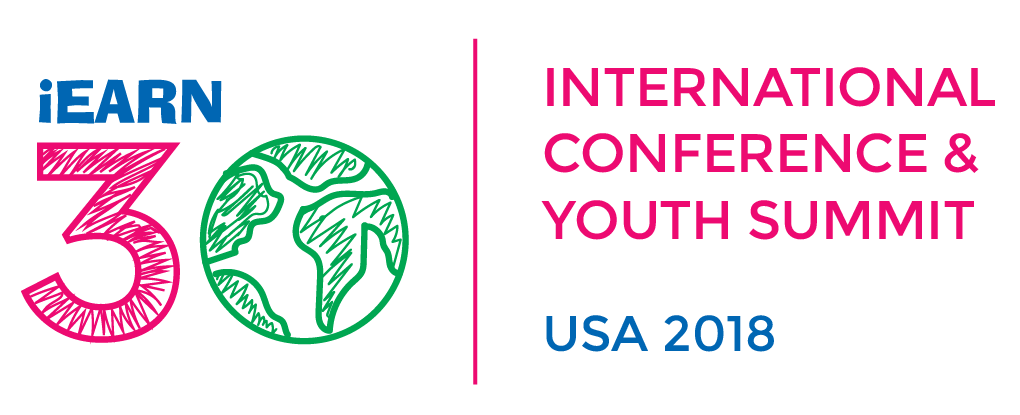Sessions
Introducing the Mutually Adaptive Learning Paradigm - How to Help Refugees Arriving with Limited Formal Education at the iEARN Conference
Helaine Marshall
Long Island University
Helaine W. Marshall is Director of Language Education Programs and Professor of Education, Long Island University-Hudson. She teaches courses in TESOL, Linguistics, and Multicultural Education in face-to-face, online, and flipped learning formats. Dr. Marshall wrote and directed a National Institute for Literacy Bilingual Adult...Read Full Bio
Helaine Marshall
Helaine W. Marshall is Director of Language Education Programs and Professor of Education, Long Island University-Hudson. She teaches courses in TESOL, Linguistics, and Multicultural Education in face-to-face, online, and flipped learning formats. Dr. Marshall wrote and directed a National Institute for Literacy Bilingual Adult Literacy Grant and has developed programs for secondary and adult students with limited or interrupted formal education. She is the co-author of Making the Transition: Culturally Responsive Teaching for Struggling Language Learners and Breaking New Ground: Teaching Students with Limited or Interrupted Formal Education. Her other research interests include nontraditional approaches to the teaching of grammar and the incorporation of instructional technology in language teaching, in particular the flipped learning approach. She has published in Preventing School Failure, Urban Review, and TESOL Journal among others. Dr. Marshall serves on the boards of the NYS TESOL Journal and the Flipped Learning Network. She is also a litigation consultant and expert witness in state and federal cases dealing with programs and services for immigrants and refugees, particularly those who are SLIFE.
Session Description
This is a workshop on how to help refugees adjust to school both culturally and academically when they have extreme dissonance as a result of limited prior experiences with formal education, literacy, and subject matter content. The workshop gives participants practical recommendations with tools to implement them - handouts, resources, and activities - that can transform their practice and get real engagement and achievement for vulnerable populations, particularly those newly arrived in their country as adolescents. The workshop introduces the Mutually Adaptive Learning Paradigm, a culturally responsive approach to classroom instruction that asks both teachers and learners to accommodate each others' priorities, move from familiar to unfamiliar, and conduct immediately relevant academic projects that foster interconnectedness, leverage the oral tradition of learners, and build collaboration.
What will educators learn and be able to do at the end of the session?
- To prepare educators to deal with the extreme cultural dissonance experienced by many adolescent arrivals with limited literacy and limited schooling.
- To support educators by giving them the tools to understand the invisible aspects of culture that influence teaching and learning so that they can make adjustments in their own approach and also help students transition to formal education.
- To provide resources for following up on the Mutually Adaptive Learning Paradigm so that they can continue to learn more about it and share it with colleagues.
Additional Session Information
This workshop is a follow-up to the Roundtable Discussion on quality education options for immigrants, refugees and other struggling language learners in countries all around the globe (submitted separately by the presenter).
Session Resources
Introducing the Mutually Adaptive Learning Paradigm - How to Help Refugees Arriving with Limited Formal Education - websites
Mutually Adaptive Learning Paradigm site
INTRODUCING THE MUTUALLY ADAPTIVE LEARNING PARADIGM - HOW TO HELP REFUGEES ARRIVING WITH LIMITED FORMAL EDUCATION Introducing the Mutually Adaptive Learning Paradigm - How to Help Refugees Arriving with Limited Formal Education - website
Online polling tool to get participants' responses
Introducing the Mutually Adaptive Learning Paradigm
Workshop Powerpoint
Introducing the Mutually Adaptive Learning Paradigm
Activity (paper to handout)
Introducing the Mutually Adaptive Learning Paradigm
Karin's thoughts and feelings & Intercultural Communication Framework
Introducing the Mutually Adaptive Learning Paradigm
Symbols Lesson
Introducing the Mutually Adaptive Learning Paradigm
Teacher Planning Checklist & Absence Chart
